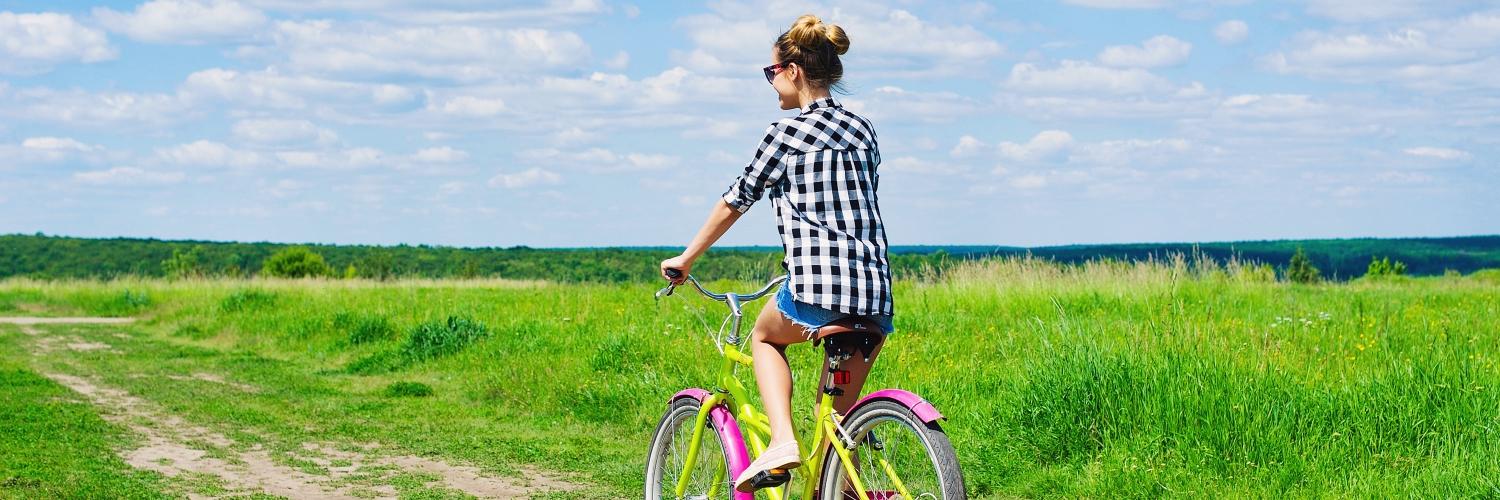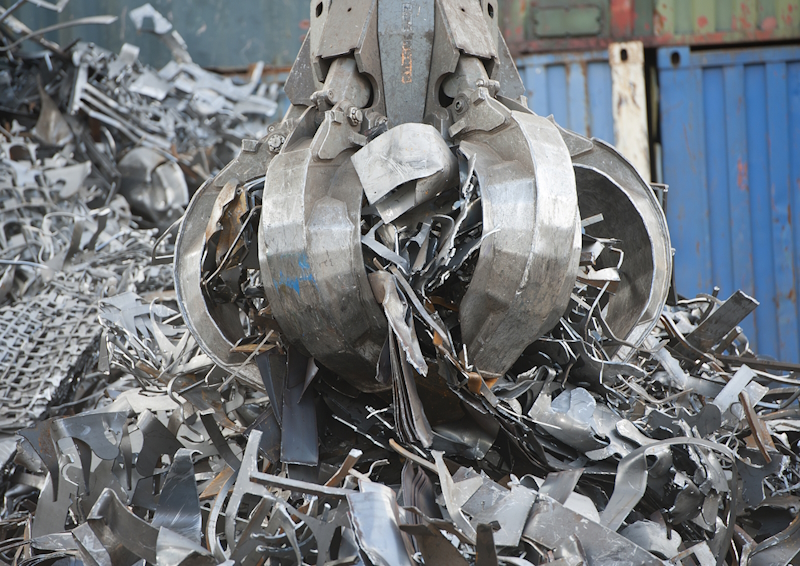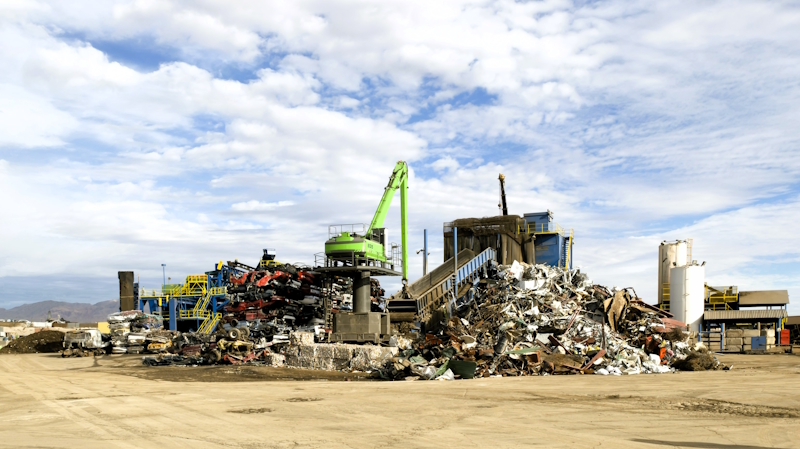
News
14 March 2024
BIR president Susie Burrage: ‘BIR’s proactive role is crucial’
BIR to get its message across more powerfully
Susie Burrage has been president of BIR, the Bureau of International Recycling, since May last year. She wants to build on the global federation’s new direction to get the importance and added value of recycling firmly in the minds of politicians and industry. ‘We’re going to be much more involved in the policymaking process.’
Burrage summarises BIR’s new role in one word: proactive. She has been president of the global federation of recycling companies and industry associations, with members from around 70 countries, since May last year. Her first actions were to expand the office in Brussels to strengthen its lobbying of EU policymakers and to launch a series of position papers on pressing issues.

Every year around twenty million tonnes of scrap metal is exported outside the EU as secondary raw materials
Much more involved in policymaking
The first position paper, on extended producer responsibility, was published in November. Position papers on trade barriers and chemicals recycling are in preparation. ‘In the past we have reacted to events rather than being proactive,’ says Burrage. ‘We’re now going to be much more involved in the policymaking process. We must ensure that our message comes across much more forcefully, not only among our own ranks, but elsewhere too. A proactive role is crucial if we are to move closer to a circular economy.’
Lobby for design for recycling
What is essential, says Burrage, is a much stricter policy on design for recycling. ‘I see that many manufacturers don’t think about the recyclability of their product during the design phase. You can stimulate that with legislation. A start has been made on this, but manufacturers are lobbying hard to resist it. The legislation is not nearly circular enough. We will have to lobby hard to make more progress.’

Susie Burrage, president of BIR - the Bureau of International Recycling
'Recycling protects the environment, prevents pollution and saves natural resources, energy and carbon emissions.'
Primary materials scarcer
The energy transition needs large quantities of raw materials to make batteries, solar panels and wind turbines, but primary materials are becoming more difficult to extract and are increasingly scarce. ‘It’s therefore inevitable that we’ll have to recover more materials from discarded products. Increasing numbers of lithium batteries are being discarded in mobile phones, and soon from electric cars. Some of these are not suitable for reuse and that presents our sector with a huge opportunity to recover the raw materials from them.’
Recycling companies growing in importance
The advanced technologies recycling companies have in house can make this all possible, emphasises Burrage. ‘Enormous progress has been made in the last fifteen years, such as laser-optical sorting machines for plastic waste. We provide the tools for recovering raw materials.’ At the same time, recycling companies will receive greater recognition, predicts Burrage, because their work will only become more important. ‘That’s precisely what our sector should stress. We don’t collect waste, we create new raw materials. Like car companies that go on about the cars they build, we must emphasise the value of the raw materials we supply.’
‘We must emphasise the value of the raw materials we supply.’
Adaptive sector withstands global conflicts
The global recycling sector must navigate through a turbulent era of geopolitical disturbance. The controversy between China and the US and Russia’s invasion of Ukraine have highlighted how dependence on raw materials makes countries vulnerable. The growing conflict in the Middle East has disrupted shipping in the Red Sea, with consequences for global recycling streams. ‘This situation brings back memories of the Covid period, when just about everything came to a standstill,’ says Burrage. ‘International trade is under considerable pressure. We are following developments; not that we can do much. Fortunately our sector is highly adaptable. Thanks to the BIR network, our companies found alternative routes within just a few weeks. We have members everywhere. We are a resilient sector and always remain optimistic, even when the situation is far from ideal.’
Preventing trade barriers
BIR was established some 75 years ago to break down the many trade barriers facing the recycling sector. But now new trade barriers are being thrown up. ‘It seems as if we’re back to square one. Unfortunately, the free trade in recycled materials still needs to be protected, and we’ll continue to do that passionately. Industries around the world are dependent on the free flow of recycled materials. Demand continues unabated. Maintaining the balance between supply and demand lies at the heart of what we do.’
Tighter export regulations
As an example of the new barriers, Burrage cites the tightening of regulations on exporting waste outside the European Union, with significant consequences for scrap metal. Every year around twenty million tonnes of scrap metal are exported from the EU as secondary raw materials. This results in a significant reduction in CO2 worldwide compared with producing steel from iron ore. ‘An export ban may seem to be a logical step for the circular economy, but the capacity for processing scrap metal in Europe is limited,’ says Burrage. She argues for a raw materials policy that supports the construction and expansion of production facilities for circular steel. ‘That would incentivise industry to use more recycled steel in its products.’
‘The legislation is not nearly circular enough.’
Differences between countries
The big differences between countries must not be forgotten either. Northwest Europe is committed to recycling and incineration with energy recovery, whereas in Southern and Eastern Europe much waste is still being landfilled. Worldwide millions of tonnes of municipal waste are dumped in the environment. ‘We have to increase recycling rates everywhere. I just got back from India, where I was surprised to see how recycling is being embraced. The tide has turned and major investments are being made in recycling, including reducing the huge mountains of landfill waste.’
Emphasising the benefits of recycling
It is no fast fix, says Burrage, but it is starting to happen. ‘It’s going from region to region, and things are even moving in Africa. That’s why we must continue to emphasise the benefits of recycling. It’s a solution to the climate problem. Countries that want to reduce their carbon footprint realise that recovering raw materials makes a contribution and that they have to stop landfilling waste. Recycling protects the environment, prevents pollution and saves natural resources, energy and carbon emissions.’
‘International trade is under considerable pressure. But we are a resilient sector and always remain optimistic.’

Industries around the world depend on the free flow of recycled materials (photo: BIR)
